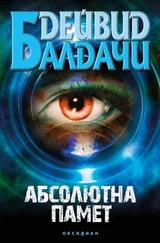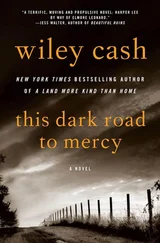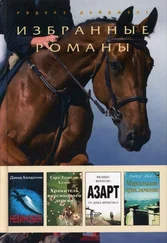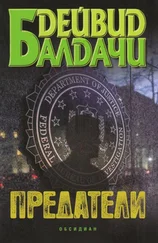Tor had escaped a death sentence due solely to his cooperating with authorities, revealing the locations of three victims’ remains. This revelation had provided a trio of families some closure. And it had allowed Tor to live, albeit in a cage, for the rest of his life. In her mind, Pine could see him easily, perhaps smugly, striking that bargain, knowing that he had gotten the better end of the deal.
His victims were dead. He wasn’t. And this man was all about the death of others.
He’d been arrested, convicted, and sentenced in the midnineties. He’d killed two guards and another inmate at a prison in 1998. The state where this occurred did not have the death penalty, otherwise Tor would have been on death row or already executed. That had led to his being transferred to ADX Florence. He was currently serving nearly forty consecutive life terms. Unless he pulled a Methuselah, he would die right here.
None of this seemed to faze the man.
“Name?” he asked, as though he were a clerk at a counter checking on an order.
“Mercy Pine.”
“Place and time?”
He was screwing with her now, but she needed to play along.
“Andersonville, Georgia, June 7, 1989.”
He popped his neck once more, this time to the other side. He stretched out his long fingers, cracking the joints. The huge man seemed one enormous jumble of pressure points.
“Andersonville, Georgia,” he mused. “Lots of deaths there. Confederate prison during the Civil War. The commandant, Henry Wirz, was executed for war crimes. Did you know that? Executed for doing his job.” He smiled. “He was Swiss. Totally neutral. And they hanged him. Some weird justice.”
The smile disappeared as quickly as it had emerged, like a spent match.
She said, “Mercy Pine. Six years old. She disappeared on June 7, 1989. Andersonville, southwestern Macon County, Georgia. Do you need me to describe the house? I heard your memory for your victims is photographic, but maybe you need some help. It’s been a while.”
“What color was her hair?” asked Tor, his lips parted, revealing wide, straight teeth.
In answer, Pine pointed to her own. “Same as mine. We were twins.”
This statement seemed to spark an interest in Tor that had not been present before. She had expected this. She knew everything about this man except for one thing.
That one thing was why she was here tonight.
He sat forward, his shackles clinking in his excitement.
He glanced at her badge once more.
He said eagerly, “Twins. FBI. It’s starting to make sense. Go on.”
“You were known to be operating in the area in 1989. Atlanta, Columbus, Albany, downtown Macon.” Using a tube of ruby red lipstick taken from her pocket, she drew a dot on the glass representing each of the aforementioned localities. Then, she connected these dots, and formed a familiar figure.
“You were a math prodigy. You like geometric shapes.” She pointed to what she had drawn. “Here, a diamond shape. That’s how they eventually caught you.”
This was the something Tor had missed. A pattern of his own creation.
His lips pressed together. She knew that no serial murderer would ever admit to being outwitted. The man was clearly a sociopath and a narcissist. People often discounted narcissism as relatively harmless because the term sometimes conjured the clichéd image of a vain man staring longingly at his reflection in a pool of water or a mirror.
However, Pine knew that narcissism was probably one of the most dangerous traits someone could possess for one critical reason: The narcissist could not feel empathy toward others. Which meant that the lives of others held no value to a narcissist. Killing could even be like a hit of fentanyl: instant euphoria from the domination and destruction of another.
That was why virtually every serial murderer was also a narcissist.
She said, “But Andersonville was not part of that pattern. Was it a one-off? Were you freelancing? What made you come to my house?”
“It was a rhombus , not a diamond,” replied Tor.
Pine didn’t respond to this.
He continued, as though lecturing to a class. “My pattern was a rhombus, a lozenge, if you prefer, a quadrilateral, a four-sided figure with four equal-length sides, and unequal-length diagonals. For example, a kite is a parallelogram only when it’s a rhombus.” He gave a patronizing glance at what she had drawn. “A diamond is not a true or precise mathematical term. So don’t make that mistake again. It’s embarrassing. And unprofessional. Did you even prepare for this meeting?” With his manacled hands, he gave a dismissive wave and disgusted look to the figure she’d drawn on the glass, as though she had imprinted something foul there.
“Thank you, that makes it perfectly clear,” said Pine, who couldn’t give a shit about parallelograms specifically, or math in general. “So why the one-off? You’d never broken a pattern before.”
“You presume my pattern was broken. You presume I was in Andersonville on the night of June 7, 1989.”
“I never said it was at night.”
The smile flickered back. “Doesn’t the boogeyman only come out at night?”
Pine reflected for a moment on her earlier thought about monsters only striking at midnight. To catch these killers, she had to think like them. It was and always had been a profoundly disturbing thought to her.
Before she could respond, he said, “Six years old? A twin? Where exactly did it take place?”
“In our bedroom. You came in through the window. You taped our mouths shut so we couldn’t call out. You held us down with your hands.”
She took out a piece of paper from her pocket and held it up to the glass, so he could see the writing on that side.
His gaze drifted down the page, his features unreadable, even to an experienced agent like Pine.
“A four-line nursery rhyme?” he said, tacking on a yawn. “What next? Will you break into song?”
“You thumped our foreheads as you recited it,” noted Pine, who leaned forward a notch. “Each word, a different forehead. You started with me and ended on Mercy. Then you took her, and you did this to me.”
She swept back her hair to reveal a scar behind her left temple. “Not sure what you used. It was a blur. Maybe just your fist. You cracked my skull.” She added, “But you’re a big man and I was just a little kid.” She paused. “I’m not a little kid anymore.”
“No, you’re not. What, about five eleven?”
“My sister was tall, too, at age six, but skinny. Big guy like you, you could have carried her easily. Where did you take her?”
“Presumption again. As you said, I’d never broken a pattern before. Why would you think that I had then?”
Pine leaned even closer to the glass. “Thing is, I remember seeing you.” She looked him over. “You’re pretty unforgettable.”
The lip curled again, like the string on a bow being pulled back. About to let loose a fatal arrow. “You remember seeing me? And you only show up now? Twenty-nine years later?”
“I knew you weren’t going anywhere.”
“A weak quip, and hardly an answer.” He glanced at her badge again. “FBI. Where are you assigned? Somewhere near here?” he added a bit eagerly.
“Where did you take her? How did my sister die? Where are her remains?”
These queries were rapidly fired off, because Pine had practiced them on the long drive here.
Tor simply continued his line of thought. “I assume not a field office. You don’t strike me as a main-office type. Your dress is casual and you’re here outside visiting hours, hardly by the Bureau book. And there’s only one of you. Your kind likes to travel in pairs if it’s official business. Add to that the personal equation.”
Читать дальше












